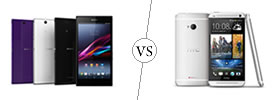Difference between Telescope and Binoculars
Key Difference: A telescope is optical instrument with a singular viewfinder that allows one to see and interpret far away objects. Binoculars have two viewfinders instead of one. Telescopes are ideally used to look at stars and galaxies in our universe, whereas binoculars are typically used for surveillance, or bird watching and animal watching on safaris.
 A telescope is optical instrument with a singular viewfinder that allows one to see and interpret far away objects. Binoculars, on the other hand, are similar in nature, but have two viewfinders instead of one. They also allow one to see faraway objects but using both eyes, which means that it provides a 3d image of the object.
A telescope is optical instrument with a singular viewfinder that allows one to see and interpret far away objects. Binoculars, on the other hand, are similar in nature, but have two viewfinders instead of one. They also allow one to see faraway objects but using both eyes, which means that it provides a 3d image of the object.
Both objects are used to look at faraway objects, however there are certain differences between the two that make them better suited for certain things, and not for others. Other than the fact that a telescope is ideally used to look through with one eye and the binoculars with both eyes, another difference between the two is the fact that binoculars usually have smaller, less powerful lens that can only see up to a distance of a few feet. A telescope, on the other hand is far stronger and can be used to see further into the distance. However, there are specialty binoculars available that are more powerful than the basic telescopes.
However, the primary difference between telescopes and binoculars is the manner in which they are usually used. Telescopes are ideally used to look at stars and galaxies in our universe, whereas binoculars are typically used for surveillance, or bird watching and animal watching on safaris.
The reason for this is the fact that binoculars are usually less powerful than telescopes. Not only are binoculars smaller in size and more portable, but they also have smaller and less powerful lenses, especially as compared to telescopes. They also have a closer focal point and a wider view, which makes them more suitable than telescopes for certain things, such as surveillance.
 While many will tell you that binoculars can’t compare with telescopes, the statement is not really true. In fact, in some instances, binoculars can actually be better suited to look at the stars than a telescope. For one, it quite a lot cheaper as compared to a telescope, which makes it a good option for newbies who many not want to invest a lot of money into a fledgling hobby, or for parents who are not sure if this is going to be a lifelong passion for their kids or just a passing fad.
While many will tell you that binoculars can’t compare with telescopes, the statement is not really true. In fact, in some instances, binoculars can actually be better suited to look at the stars than a telescope. For one, it quite a lot cheaper as compared to a telescope, which makes it a good option for newbies who many not want to invest a lot of money into a fledgling hobby, or for parents who are not sure if this is going to be a lifelong passion for their kids or just a passing fad.
Another reason is that binoculars have wider lenses, which makes them suitable to look at galaxies and whole constellations in one frame. Again this could be great for amateurs to learn differentiating between the various constellations, or for a seasoned astronomer who wants to look at star fields, the Milky Way, and some star clusters.
Comparison between Telescope and Binoculars:
|
|
Telescope |
Binoculars |
|
Definition (Oxford Dictionaries) |
An optical instrument designed to make distant objects appear nearer, containing an arrangement of lenses, or of curved mirrors and lenses, by which rays of light are collected and focused and the resulting image magnified. |
An optical instrument with a lens for each eye, used for viewing distant objects. |
|
Description |
Long, narrow cylindrical object that is commonly used to look at far of objects in the sky |
Hand-held object with dual telescopes mounted side-by-side |
|
Uses |
Stargazing, Astronomy |
Birdwatching, On Safaris, surveillance, spying on people, etc. |
|
View |
Long distances |
Short distances |
|
Lens |
Single view |
Dual view |
|
Type of Lens |
Larger, long distance lens |
Shorter, smaller lenses |
|
Zoom |
Ranges from 12x or 15x, to up to 45x or 60x. Can be more in specialty ones. |
Ranges from 4x to up to 12x. Can be more in specialty ones. |
|
Focus |
Further, often 15 to 20 feet, but can easily be more depending on the lens. |
Closer, often 4 to 5 feet in distance |
|
Field of view |
Narrow and specific |
Wide view |
|
Depth of field |
Flat |
3D due to the dual view using both eyes |
|
Weight |
Heavier - 1 to 2 kilos |
Lighter, can be 80 gms or 3 ozs minimum |
|
Movability |
Bulkier – Usually for setting up in one stop for long. Not east to dismantle and carry |
Less Bulky – Easy to carry around |
|
Cost |
Typically, higher than binoculars, depending on the model. |
Typically, lower than telescopes, depending on the model. |
Reference: Wikipedia (Telescope and Binoculars), Actionoptics, Solent Amateur Atronomers, Shoalhaven Astronomers Image Courtesy: efdreams.com, Amazon.com









Comments
Tog UAE
Sat, 02/24/2018 - 19:14
paclar honey may c.
Fri, 02/23/2018 - 17:19
Add new comment